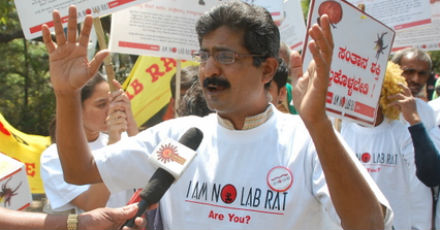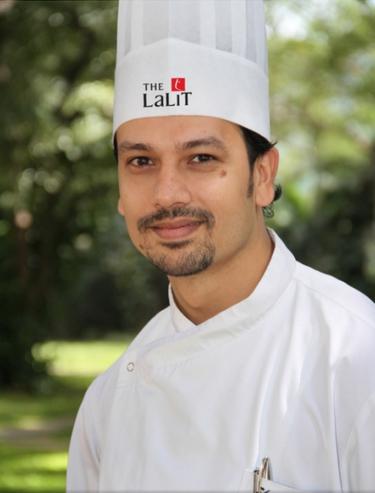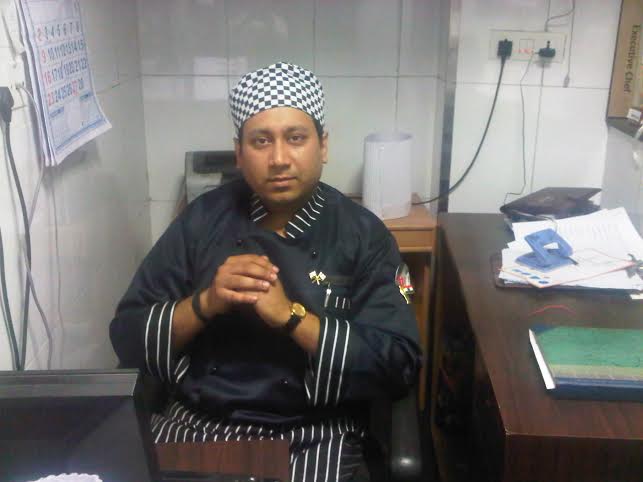Krishna Prasad: Social Entrepreneur and Seed Revolutionary
Oct 11, 2019, 11 27 | Updated: Oct 11, 2019, 11 27
Born to a family of farmers, Krishna Prasad was taught the value of traditional farming at a very young age. And the importance of remaining organic. Here, he speaks to Explocity about his company Sahaja Samrudha and his work as a seed saviour, trying to safeguard local seeds from extinction by the ambush of GM companies.
“I come from a family of farmers.”
From a very early age, I was involved with agricultural activities. My family was my inspiration, they introduced me to innovative farming techniques and sowing different varieties. I was inspired by Masanobu Fukuoka’s ‘One Straw Revolution,’ which helped me realise the importance of natural farming.
“My mother is a good seed saver.”
I remember my mother saving seeds and preserving them for the next season. I used to help her select the best seeds, sow and maintain plants and sell vegetables. I wanted to see happiness in every farmer, which was not possible. I was trying to analyse the cause and struggle behind their lack of success and this made me write articles relating to the agriculture crisis.
“Once, someone asked me to write on a local variety of seed, but I wasn’t able to find any farmer growing it.”
This made me think about the many food varieties that were becoming extinct. It was a turning point for me. I joined Green Foundation, pioneers in seed conservation, and spent 12 years with them. I built up a network of organic farmers, created seed banks, published books on a variety of seeds and built relationships with other conservation organisations in the country.
“I still felt the approach I was taking wasn’t enough to change the direction of Indian agriculture.”
So, I left the Green Foundation to start my own organisation, Sahaja Samrudha. Organic farmers need strong market support. The key is in creating a sustainable supply of organic seeds. From seed to market, I promoted a company owned by organic farmers themselves.
“The corporate grip over all inputs, especially seeds, is the most alarming because it threatens to hold farming and food security hostage to big business interests.”
Huge corporations now produce much of the seed used by farmers. These companies typically sell only widely used hybrid varieties of seeds, which have accelerated the disappearance of traditional seed varieties. The situation has worsened with poor regulation and absence of punitive measures to protect farmers’ interests. It has encouraged spurious seed manufacturers and sellers to exploit farmers.
“Seed banks have evolved as the solution to ensure supply of organic seeds to farmers.”
Intellectual property rights in India protect the rights of farmers over traditional and organic seed varieties. Therefore, unless commercial seed companies organise farmer groups and partner with them to commercialise seeds, they cannot supply organic seeds. In this context, seed banks have evolved as the solution to ensure supply of organic seeds to farmers.
“We are plugging the increasing demand for organic seeds in India, by commercialising organic seeds.”
This we plan to do through an organic seed company that will be owned and managed by farmers. We are creating a new market for organic farming in India by leveraging the knowledge and network of existing farmers to revive and maintain traditional varieties of seeds.
“Farmers believe that HYV (high yielding varieties) perform better than the local varieties or the landraces (indigenous plants).”
It was a major challenge to change the idea they had regarding landraces. It was difficult to convince them that local varieties would respond well to the traditional way of cultivation, which is good for the environment, and that they yield as well as the HYVs.
“There is no market demand or consumer acceptance for local varieties.”
Though farmers follow organic methods with traditional crops, they were unable to market their produce due to insufficient market facility. Karnataka does not have an exclusive market to sell their organic produce, resulting in them ending up in a common market, thereby defeating the whole purpose.
“We developed a connectivity network of consumers and producers for procurement and marketing under the brand name Sahaja Organics.”
The company was formed to market traditional rice, millets and organic produce. The produce is procured directly from the farmer and supplies it to the network outlets. This chain has been created for the produce to reach the consumer directly.
“We faced financial problem to initiate the programme.”
Friends of GM Free India and Alliance for Sustainable & Holistic Agriculture (ASHA) supported our initiative. Many green investors also supported the cause. The Ashoka Foundation broadened my network and these new contacts will enable me to learn new ideas and take the work forward with more confidence. Of course, financial stability also gave me the strength. We have 786 organic producers from different parts of Karnataka and over 2000 farmers who have been indirectly benefited. Sahaja is supplying a wide range of organic produce to 26 outlets on a regular basis in major cities of South India. We have a turnover of over one crore.







